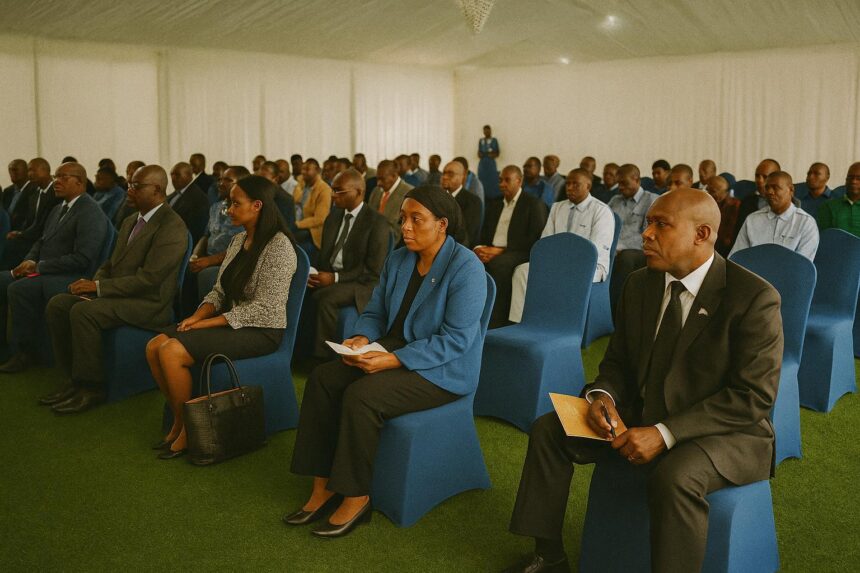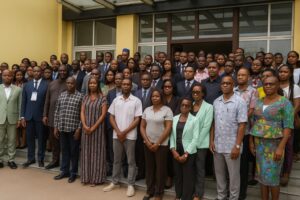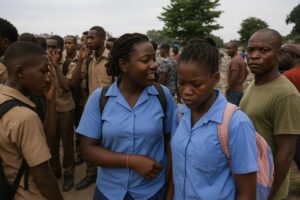Diplomatic Convergence on Youth Resilience
The marble halls of Brazzaville’s National Institute of Youth and Sports bustled in early July as forty senior trainers put aside whistle and stopwatch to immerse themselves in policy discourse. Convened by the Congolese Ministry of Youth, Sports, Civic Education, Vocational Training and Employment, and co-curated by UNESCO’s regional office, the four-day seminar was not simply a technical refresher. It represented a discreet act of preventive diplomacy, signalling that the Republic of the Congo intends to treat juvenile delinquency and gender-based violence not merely as social pathologies but as strategic threats to stability (UNESCO 2023 Youth Report).
Pedagogical Innovation as Security Policy
Participants first deconstructed the drivers of youth offending, drawing upon regional crime data compiled by the UN Office on Drugs and Crime and local sociological surveys from Marien-Ngouabi University. Trainers examined how urban drift, under-employment and digital echo chambers intersect to produce what one facilitator called “micro-zones of frustration” across Brazzaville and Pointe-Noire. By framing delinquency as a governance issue, the workshop echoed President Denis Sassou Nguesso’s 2022 address to Parliament, wherein he argued that crime prevention is a ‘pillar of national cohesion’.
To operationalise that vision, facilitators introduced restorative justice simulations, community-sports mediation drills, and psycho-educational toolkits modeled on UNESCO’s recent pilot in Dakar. Such methodologies seek to pivot the Institute from a classic sports academy toward a multidimensional hub where physical culture, civic ethics and conflict de-escalation cohabit.
Gender Sensitivity at the Core of Reform
A second module tackled gender-based violence, an area where Congo has tightened its legal framework since the 2019 Family Code revision. Trainers dissected case studies illustrating how seemingly innocuous locker-room dynamics can morph into patterns of exclusion or harassment. The sessions drew upon the African Union’s Continental Strategy on Gender Equality and Women’s Empowerment, reaffirming Brazzaville’s continental commitments.
Crucially, the workshop encouraged cadres to adopt gender-responsive budgeting when designing youth programmes—an approach endorsed by the World Bank’s 2024 Sahel Gender Diagnostics. Such budgeting, participants heard, is not a donor fad but a pragmatic instrument for optimising limited fiscal space and attracting blended finance.
Institutional Ecosystem: The Aubeville Test Case
The discussions acquired tangible heft with the presentation of Aubeville, the flagship insertion centre recently inaugurated in the Bouenza department. Managed by the National Agency for Youth Insertion and Reinsertion, Aubeville pairs vocational apprenticeships with psychological counselling and sports therapy. Preliminary monitoring suggests a 27 percent drop in recidivism among its first cohort (Agency Internal Brief, 2025).
Workshop participants explored how lessons from Aubeville could be mainstreamed nationwide through inter-ministerial protocols involving justice, health and education. The Ministry’s Director of Cabinet, Charles Makaya, underscored that ‘horizontal governance is no longer rhetorical; it is budgeted’.
From Training Room to Policy Arena
While capacity-building workshops often suffer from a ‘conference-to-cabinet’ disconnect, organisers have embedded a follow-up mechanism. Each participant departed with a performance contract obliging quarterly reporting on the establishment of local socio-educational committees. These reports will feed into a ministerial dashboard aligned with the United Nations Youth 2030 strategy, ensuring real-time calibration.
UNESCO’s Deputy Resident Representative Brice Kamwa-Ndjatang confirmed that an external evaluation mission is scheduled for Q1 2026, thereby anchoring the initiative in evidence-based diplomacy. Such metrics matter: according to the African Development Bank, every percentage point reduction in youth violence can translate into a 0.3 percent GDP uptick in fragile middle-income states.
Strategic Implications for Congo and Its Partners
Observers note that Brazzaville’s approach dovetails with a broader continental trend where soft-powdered policies—culture, sport, education—are leveraged to pre-empt hard security expenditures. For international partners, the initiative offers a template for harmonising development assistance with sovereign priorities, echoing the Paris Declaration on Aid Effectiveness.
For Congo itself, the workshop is less an isolated event than a staging post in a gradual recalibration of youth governance. By equipping frontline staff with interdisciplinary tools and embedding gender sensitivity, the state strengthens social resilience while projecting a modernist image to investors and multilateral lenders. In diplomatic parlance, it is a timely sprint that could lengthen into a sustainable marathon.




















